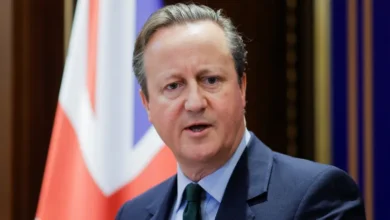The Max Planck Society must end its unconditional support for Israel
Employees of the Max Planck Society

Employees of the Max Planck Society
We, a diverse group of employees at the Max Planck Society (MPS), Germany’s top research institution, are writing this letter to express our disapproval of the position our employer has taken on Israel-Palestine and call for a serious change in discourse, both within the MPS and in Germany as a whole, about Israel-Palestine.
On October 11, MPS published a “statement on the terror attacks against Israel”, which began with a condemnation of “the horrific attacks by Hamas against Israel in the strongest possible terms”.
It went on to express solidarity with Israel, grief for Israeli and other lives lost, and sympathy for affected families, friends, and loved ones. It lamented that students, young academics, and other employees of universities and research institutions would be “called up as reservists” and reaffirmed a commitment to maintaining “close scientific and personal ties” with research institutions in Israel, and using those connections to “extend support wherever possible”.
The only sentence that mentioned Palestinians was one that ascribed responsibility for their “unspeakable suffering” not to Israel or the Israeli army, but to Hamas.
The statement did not sit well with numerous employees of the MPS, nor have subsequent statements and actions of the MPS in the past six months.
In November, MPS President Patrick Cramer went on a visit to Israel and the Weizmann Institute of Science and expressed his support for Israeli researchers, but voiced no criticism of the actions of the Israeli army in Gaza. In December, the MPS announced it was allocating one million euros ($1.1m) for German-Israeli research collaboration. The programme seeks “to help stabilise Israel’s world-leading scientific community during the current crisis”.
The way the programme was framed to the public reflects the MPS leadership’s perception that there is only one victim that needs to be supported – the Israeli research community, which allegedly suffers severely as a consequence “of the Hamas attack on Israel” – meaning only the Israeli research community suffers from the relentless war carried out by Israel against Gaza. Why German taxpayers’ money should be spent to stabilise a research community impacted by the actions of its own government remains inexplicable to us.
On the other hand, not a single euro, or indeed word, has been spent on offering any kind of help to the scientific communities in Gaza and the West Bank, which are the primary victims of Israel’s war and policies of violent occupation. According to a statement issued by the Euro-Med Human Rights Monitor, “the Israeli army has killed 94 university professors, along with hundreds of teachers and thousands of students, as part of its genocidal war against Palestinians in the Gaza Strip”.
In February, an article appeared in the German newspaper Die Welt, attacking eminent Lebanese-Australian scholar Ghassan Hage, employed at the Max Planck Institute for Social Anthropology, which is part of the MPS. Within a few days, the MPS announced it was firing him for “expressing views that are incompatible with the core values of the Max Planck Society”. Hage had been critical of Israel in his online posts.
An open letter from Max Planck researchers was circulated in protest of Hage’s dismissal, appealing for the reversal of this decision. We support the letter and also stand behind an earlier statement by colleagues published on December 17, criticising the MPS’s stance on Israel-Palestine and asking it to reconsider its position of unconditional support of Israel and its academic institutions in their entirety.











